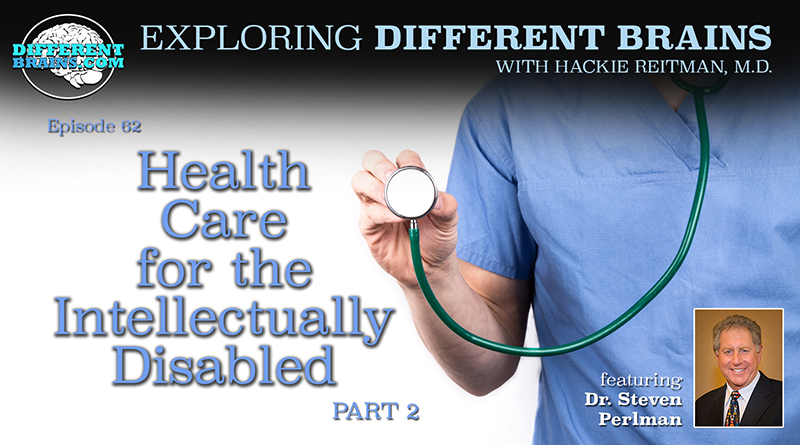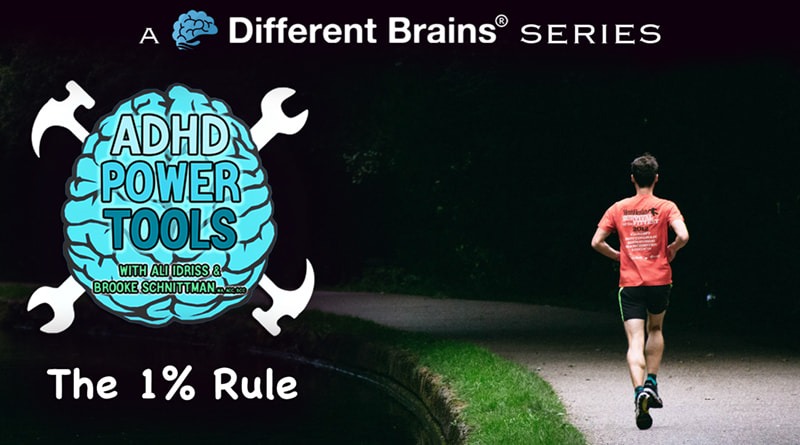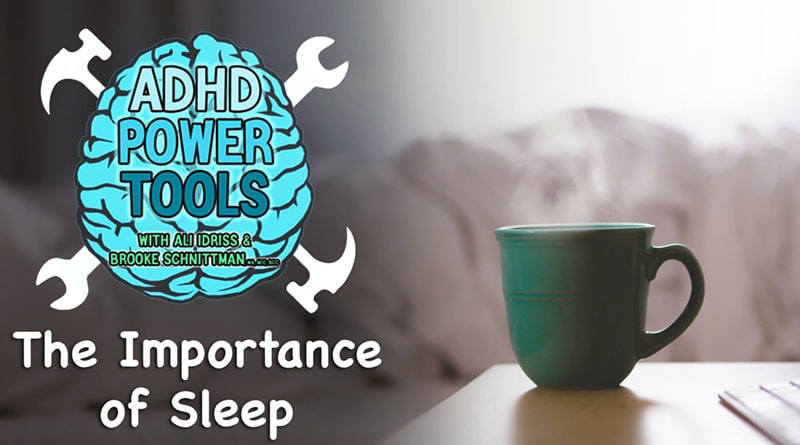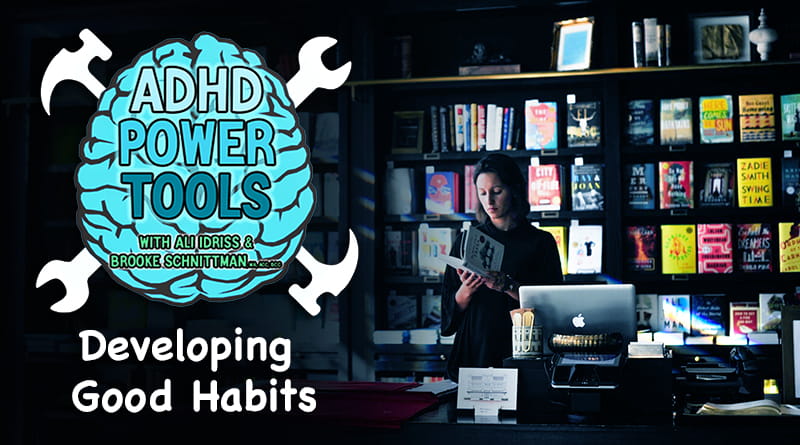
Health Care for the Intellectually Disabled (Part 2), with Dr. Steven Perlman of the Special Olympics and AADMD | EDB 62
In this episode, Harold Reitman, M.D. speaks with Dr. Steven Perlman in the second of a two-part interview (view the first installment here). He is a Clinical professor of Pediatric Dentistry at The Boston University Goldman School of Dental Medicine, Co-founder and previous president of The American Academy of Developmental Medicine and Dentistry (AADMD), and was an integral part of bringing health care services to the Special Olympics- a move that has revolutionized how the medical system interacts with the developmentally disabled. Dr. Perlman discusses the challenges of getting medical professionals to embrace the treatment of special needs patients, the global reach of the Special Olympics’ programs, and what needs to be done to ensure quality health care for the neurodiverse.
For more on the AADMD, visit: www.aadmd.org
For more about the health services offered by the Special Olympics, visit:
www.specialolympics.org/health.aspx
33 Second Preview:
To listen or download the audio-only, podcast version of this episode, see the embedded player below.
Or look for us on your favorite podcast provider:
iTunes | Stitcher | SoundCloud
[expand title=”Click Here to View Full Transcript”]
HACKIE REITMAN, M.D. (HR):
Hi, welcome to exploring different brains, I’m Dr. Hackie Reitman and today we are gonna have the continuation because I have a lot of questions for Dr. Steve Perlman, the co-founder of AADMD, that’s the organization for all health care providers that take care of those of us with different brains, with special needs and is a great need in our country and Steve welcome.
- STEVEN PERLMAN (SP):
Thank you Hackie, it’s my pleasure to be here with you, I’m a fan of yours too and neurodiversity.
HR:
What we just heard and seen here is taking you through history, shocking! And now the challenge is that he’s taken on one at a time all over the world, is not just here, it’s a 170 countries. I saw first hand the students, the residents, the interns across all disciplines out there being inspired by Steve Perlman and Rick Rader and Tim Shriver and other leaders out there, it was just fabulous, but the challenge still remains Steve.
SP:
The challenges are huge Hackie, you know as you know everything we do, my job is to really now currently is to increase access to care for people with intellectual disabilities, and to help educate help health care providers to take care of them and to take better care of them but we are faced with so many barriers, you know I’ve lectured about this my whole career and I always talked about that one of the biggest barriers is payment, finances, you know, people they tend to live on the – people with ID tend to be at the poverty level, they don’t have access to quality health care because their limitations, the problems with the medicate programs, every state has a different medicate program but it certainly is not helpful to people that take more time to examine them, to understand their problem, so I’ve talked about provider, I’ve talked about finances as being a huge barrier, I’ve talked about lack of health care providers just don’t have the material… sorry, health care providers don’t have the education background to treat these patients, you know the medical school curriculums are packed, dental school curriculums are packed and as a matter of fact we have been fighting dental schools to change the curriculum to educate dental students in the care of people with intellectual disabilities and we’ve made a major roadblock, we fought this with the council on dental accredidation for years and the only thing to this date, the only thing that we could get passed were the dental students be educated in the diagnosis and treatment planning for person with special health care needs. We were never able to get them to commit to actual treatment and that’s because the schools say number 1, we don’t have a faculty to treat, we don’t have a faculty to educate the students and number 2, we can’t make any money on the schools at doing these services and so can you believe that the only thing we were able to get after all these years and all this fighting, they would not commit to having a dental student actually treat a patient, is only the diagnosis and treatment planning. And medical schools… so now one of our new projects Hackie for AADMD is we are actually have gotten a grant to change medical education and to develop education for medical students and the treatment of people with health care needs and I’m very excited about that because
HR:
I was lucky enough to hook up with somebody at Boston University where, via Skype, I gave a lecture on it to the third year students at Boston University and I was delighted to be able to give the first several lectures in neurodiversity to the American Academy of orthopaedic surgeons this past year also also, but it’s gotta a long way to go. I think that maybe, what maybe on the horizon to really help this, because what I tried to do is to figure out if I’m a young doctor or dentist now, what is keeping he or she from embracing this? and a lot of it is ignorance, they just don’t know how, it’s overwhelming to even think about it and what may be on the horizon Steve that the AADMD might champion is by hooking up with our colleagues in Silicon Valley, is the use of artificial intelligence, and technology and apps, to make it into a cook book of sorts. Because right now you hit a wall, I know when I’ve have spoken to doctors about it. And you are tackling that to try to change it, and you are running into roadblock after roadblock.
SP:
Yeah but Hackie, figure as a healthcare professionals this is what we have to deal with first of all… you know so it’s more than finances, it’s more than lack of education of health care providers, there is this stigma, you know in your field, you know everybody … I’m a sports medicine guy, because that’s what they lead at in your specialty of orthopaedic surgeon, they…
HR:
We only fill half the fellowships for pediatric orthopaedics.
SP:
That’s right, those are the cream, I’m wanna be in sports medicine… I wanna treat the athletes of richer families. So you’ve got the stigma of you are treating people with intellectual disabilities that’s ‘cause you are not good enough to treat neurotypical people. You know, the lack of communication, the problem with communications problems, you know you’ve got the patients spoke all day and now you’ve got somebody who’s brought to your office because maybe they have a limp or their behavior is bad now, because all of a sudden they are exhibiting behavioral issues. A lot of times that behavioral issue is an underline medical problem that that person can’t express to you, so you get somebody who brings the patient from a group home and you are talking to the caregiver and the caregivers says I just drove him here, I don’t know the history of the problem. I don’t know when it started, I don’t know how it manifest itself, is it worse in the morning than at night? I don’t know, is it worse when it has activity? I don’t know and you are dealing with a non-verbal patient. So those communication problems to somebody who has a busy afternoon they are terrible! You know the lack of… the problems of who has ownership of this problem, you know you see a problem with one of your patients and you need to operate them but you need consent of a legal guardian who’s is gonna take…
HR:
That’s what I mean, so what you are describing it’s like this- and you have to make it to… here’s the cook book pal, ABCD… You took, back in the formation of this, an individual who was supposed to get all of their teeth pulled because it’s the best thing to do, a consensus of 99.9% of dentist in the world, that’s the best thing to do for this individual and Steve Perlman said no! we’ll go in there, here’s our cook book- we’ll do general anesthesia we’ll get the right assistance, the right equipment, the right everything, we’ll also contact their medical doctor to see as long as this patient is under general anesthesia what else are we gonna do, there’s communication, there’s spirit, there’s a goal and guess what, everybody likes a leader. If the leader has a good thing he wants to do, people are basically good I feel, but they get scared when they are ignorant and they get scared when they don’t know what they are doing and they get scared when they are not getting paid and they have to meet their overhead, you know, and these are all things where we’ll say you know here’s how we are going to attack it and that’s what you’d been doing. All I’m doing is trying to be on a soapbox to get people to listen to you because you know what you are doing.
SP:
Well you know, when we first met and you talked about your concept of neurodiversity and that every brain is like a snowflake, and no two brains alike and you hit the nail on the head.
HR:
Well I thought that Rebecca did and I have to give her credit and I was so proud that the Rick Rader down at his giant clinic in Chattanooga made that into a big thing when you walked in there as Rebecca’s quote “Every brain is like a snowflake, no two are alike” but it goes to everything else going on now it really does and I’m hoping that… the year is now the end of 2016 going into 2017, maybe we’ll get the new president of the United States to wear a t-shirt that says my brain is different maybe you’ll get access there for Steve Perlman to go in there get the leadership, to get this and tackle it.
SP:
We are working with Centre for Disease Control here and you know we have at Special Olympics Healthy Athletes we have a grant with them, because they don’t have the answers. In other words, they know how many people are born with Spina bifida and how many people are born with down syndrome but for example they don’t know how many people have autism, but more important how does that disability affect the quality of their life, the co-morbidities and the secondary conditions. So, we have the biggest with 5 million athletes throughout the world. We have the world’s best data base…
HR:
Well let me share a bit of the data base that was… , I don’t wanna say it made me happy but it was aha! we are on the right track at differentbrains.com because when the average person pictures the Special Olympics they picture what? down syndrome. Let’s hear some of the statistics from your database.
SP:
Exactly, we don’t have the exact statistics but I can get them to you. it used to be… down syndrome used to be our most common diagnosis and you know… you know there are over 300 causes of intellectual disability. There are over 350 causes of intellectual disability and you know what’s interesting too is the percentage of people with intellectual disabilities varies. In the United States is roughly 2.5% of the population, 7.5 million, but in Asia there’s 10%, in Africa 8 to 10% of the population. So, world wide you are talking well over 300 million people with intellectual disabilities. Autism now has to be… the autism people… people within the autism spectrum disorder has to be the most prevalent upcoming prevalence of our athletes and you know when ms. Shriver created Special Olympics, the youngest age for someone to participate was 8, there was no upper age, you could be 78 and 90 and still participate in the Special Olympics, but from being in the health trenches for all these years now, the parents and advocates had asked as to create an early intervention program, so we have this program now called young healthy athletes which is 2 to 7 and that is i think the future of the organization as well as some of the innovative things that they are doing, you know, integrated sports programs, called unified sports where people with an intellectual disability and a neurotypical person are participating on the same team. we tried everything to brake down the barriers, between neurtypical and people with snowflakes.
HR:
One of the things that I was so glad to hear when I was speaking was Tim Shriver get up and say “today was one of the most important days ever in the Special Olympics” why? Because ESPN covered it as just an interesting sporting event as opposed to this is a 60 minute special report or 20-20.
SP:
One of the I think biggest messages that we can convey is that this population doesn’t need pity. Special Olympics had been credited with bringing people with intellectual disabilities from out the shadows of neglect and into the mainstream of life, but more important to show the world what they can do rather than what they can’t do.
HR:
How does one of our audience find out more about you, your organization, what you do, give them some contacts, some websites.
SP:
Yeah, well ok, for the Special Olympics Healthy Athletes initiative, we have 7 disciplines so people they can get involved if they are in the field, as a volunteer, as a leader, if they are on the field of dentistry and its auxiliaries like hygiene and assistance in the entire field of medicine, no matter what specialty it is, in the field of hearing and language, and audiologist, in the field of the physical therapists and the field of health promotion… Go to Special Olympics healthy athlete program, and each program has somebody in Washington DC who runs it and not only that but we have Special Olympics brakes the world into 7 regions and we have healthy athletes coordinators in all seven regions of the world. So whether they are in Belgium, or whether they are in Israel, or whether they are in the United Arab Republic, there’s somebody there that you could volunteer with. So as a healthcare… or as anybody related to any field of healthcare in our new program which we are in the process of developing, Hackie you know how hard this is gonna be but our new program is mental health, how do we detect depression in people with intellectual disabilities?
HR:
You brought me this hat, this Boston’s strong hat on the front, healthy athletes special smiles on the side- modeling it here on my Shrek head. But I have to let it out because my head’s so big. But I want you to explain healthy athletes special smiles right over there.
SP:
So at first when I created the healthy athletes program, Special Olympics, special smiles was the first the first program and now it is still the largest program within the Special Olympics healthy athletes movement and Boston’s strong because Hackie you had all your orthopaedic training in medical school in Boston, and have taught on the faculty for over 35 years and Boston Strong is the symbol that big poppy came out to statement after the Boston marathon bombings and nobody did more work on that scene than orthopaedic surgeons, so for you is the perfect hat bringing in your love for neurodiversity and the work that you are doing helping us in the Special Olympics movement, you are Boston and you are orthopaedics.
HR:
And I guess we should give a plug for these people on the back.
SP:
Delta Dental yeah, definitely, they help pay for many states in the United States, they provide financial support to the to the local events.You look good in that hat Hackie.
HR:
Well it covers my Shrek head. While you are out saving the world and working 80 hours a day, and I know you travel teaching all over, all over you are, what does your wonderful wife Harriet say about all of that?
SP:
Well, after 48 years of marriage she’s basically seen it all and puts up with me. Thank God we have a great dog at home that keeps her company when I travel although he’s ageing too now and he’s got… I’m spending more on health care for my dog than I’m spending on health care for myself , but you know family support is great. We have two daughters, one is nurse and one is a special ED teacher.
HR:
That’s a shocker, both helping people non stop and families of their own and everything.
SP:
Yeah, and I have 4 grandchildren and one of them has ADD and ADHD and we found the perfect thing for her, she plays ice-hockey, she’s the only girl on her junior high school team, and I’d been going to watch her play and as my daughter is going through whatever family every mother has to deal with a child with ADHD- do they need medication, should they take the medication only during the weekend or not on weekends, the way that the child… how does the child reacts to all the side effects that have it. There’s no family in the country that isn’t affected by it. You know Hackie people ask me all the time how did I get into the field, how did I … did I have a family member or a or a close family member that affected me but my turning point in my career when I was a psych major at George Washington University, I got involved in a project to find work for the homebound worker who had a severe disability and this goes back to 1966 so we are talking about a long time ago.
HR:
50 years…
SP:
Yeah, I’m 70 now, but I had to interview a boy who was my age, he was 21 and he had polio and I had to go to a center to interview him and he was in an iron lung and so here I was interviewing somebody and that could have be… you know with the polio scares in the 60’s and in the 50’s and when he went off to camp in the summer it was like the biggest worry and stuff and here I was interviewing somebody my age looking at me through a mirror in an iron lung and I said, whatever I do in my life I’ve somehow gotta involve doing something with people with disabilities and that was a life changing experience for me and that’s what we are trying to do with this work with the Special Olympics and the work with AADMD we are trying to give either before professional school or with professional school, we are trying to give them that aha moment that maybe this is something that they would participate in some form.
HR:
Well we’ve had the great pleasure today at exploring different brains to be speaking with Dr. Steve Perlman the wonderful dentist for everyone whose brain is different the founder of the AADMD
SP:
One of the founders
HR:
One of the founders and you can find about their great work at www.aadmd.org and you’ll see some of the other contact information should be should be flowing up on the graphics beneath and Steve, thank you very much for being here, it’s been an honor and a pleasure to have you you are one of my all time heroes, you’ll change the world
SP:
Thanks Hackie, appreciate it.
[/expand]
This video is owned by Different Brains Inc, kindly donated by it’s original producer PCE Media LLC.
Different Brains® Inc. founder Harold “Hackie” Reitman, M.D. is an author, filmmaker, retired orthopedic surgeon, former professional heavyweight boxer, the past chairman and president (and current board member) of The Boys and Girls Clubs of Broward County, and a neurodiversity advocate. However, it was his role as a father that led to the creation of the DifferentBrains.org website.
Hackie’s daughter Rebecca grew up with epilepsy, 23 vascular brains tumors, and underwent 2 brain surgeries before the age of 5. Her struggles and recovery put him on the road to, through 26 professional heavyweight boxing matches, raising money for children’s charities (to which he donated every fight purse).
Rebecca eventually went on to graduate from Georgia Tech with a degree in Discrete Mathematics, and Dr. Reitman wrote and produced a film based on her experiences there (The Square Root of 2, starring Darby Stanchfield of ABC’s Scandal). After graduation, Rebecca received a diagnosis of Asperger’s syndrome. Hackie, shocked at his own ignorance of the topic despite being an M.D., embarked on years of research that culminated with his book Aspertools: The Practical Guide for Understanding and Embracing Asperger’s, Autism Spectrum Disorders, and Neurodiversity (released by HCI books, publishers of the Chicken Soup for the Soul series).
This experience revealed to Hackie the interconnectedness of the conditions that fall under the neurodiversity umbrella, while alerting him to the in-fighting and fractured relations that often plague the organizations tasked with serving the community. Convinced that overcoming these schisms could help all of society, Hackie forged the Different Brains philosophy of inclusive advocacy: “Supporting Neurodiversity – From Autism to Alzheimer’s and All Brains In Between”.
In the company’s initial years of operation, Hackie self-financed all of the content on DifferentBrains.org, all of which offered free to view to the public. Currently he is the host of our weekly interview show Exploring Different Brains, writes blogs for the site, and tours the country speaking at conferences, conventions and private functions, all with the goal of improving the lives of neurodiverse individuals and their families, and maximizing the potential of those with different brains. Separate from Different Brains, Hackie is the founder and CEO of PCE Media, a media production company focusing on reality based content. He recently co-executive produced the documentary “Foreman”, the definitive feature documentary on legendary boxer and pitchman George Foreman.




